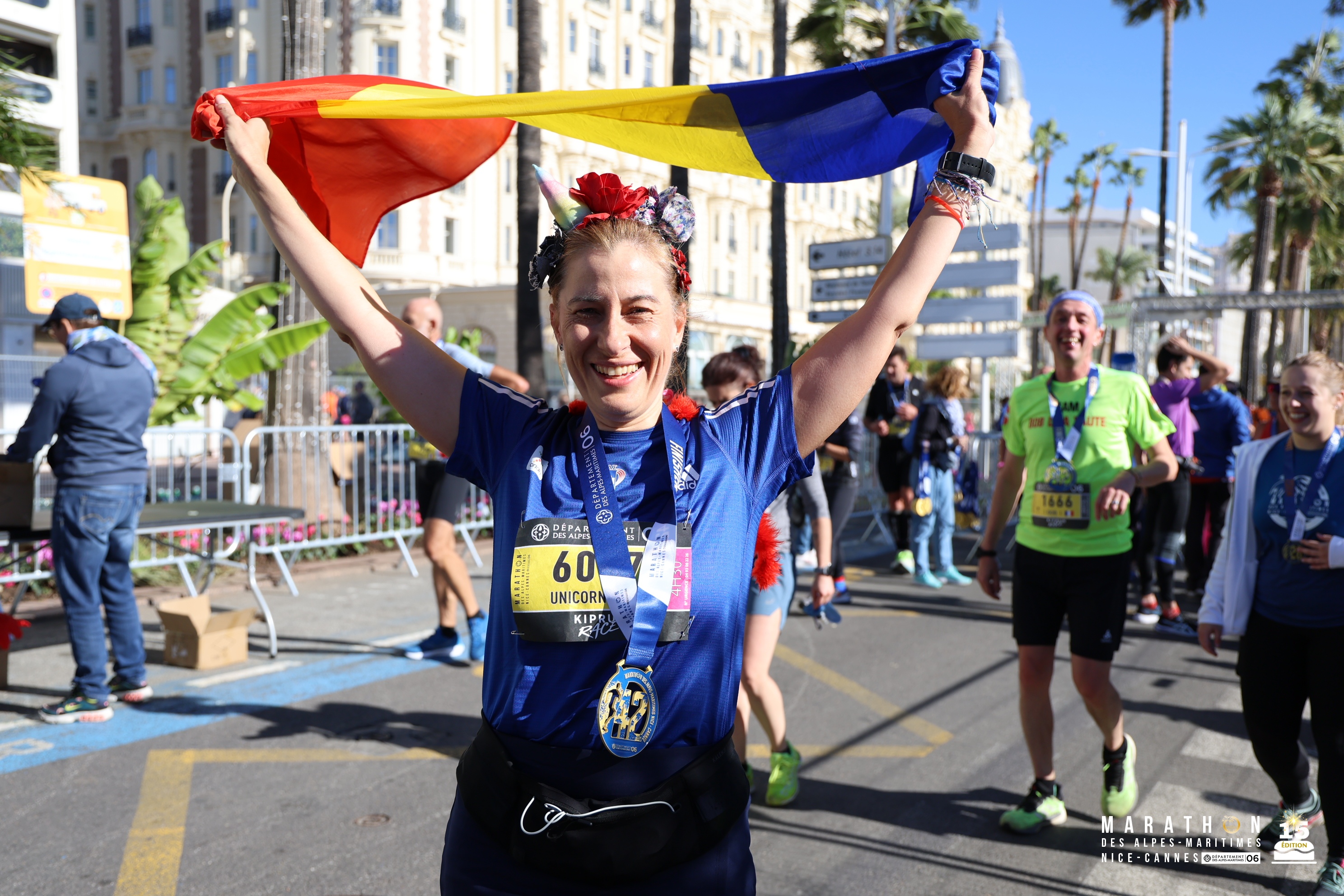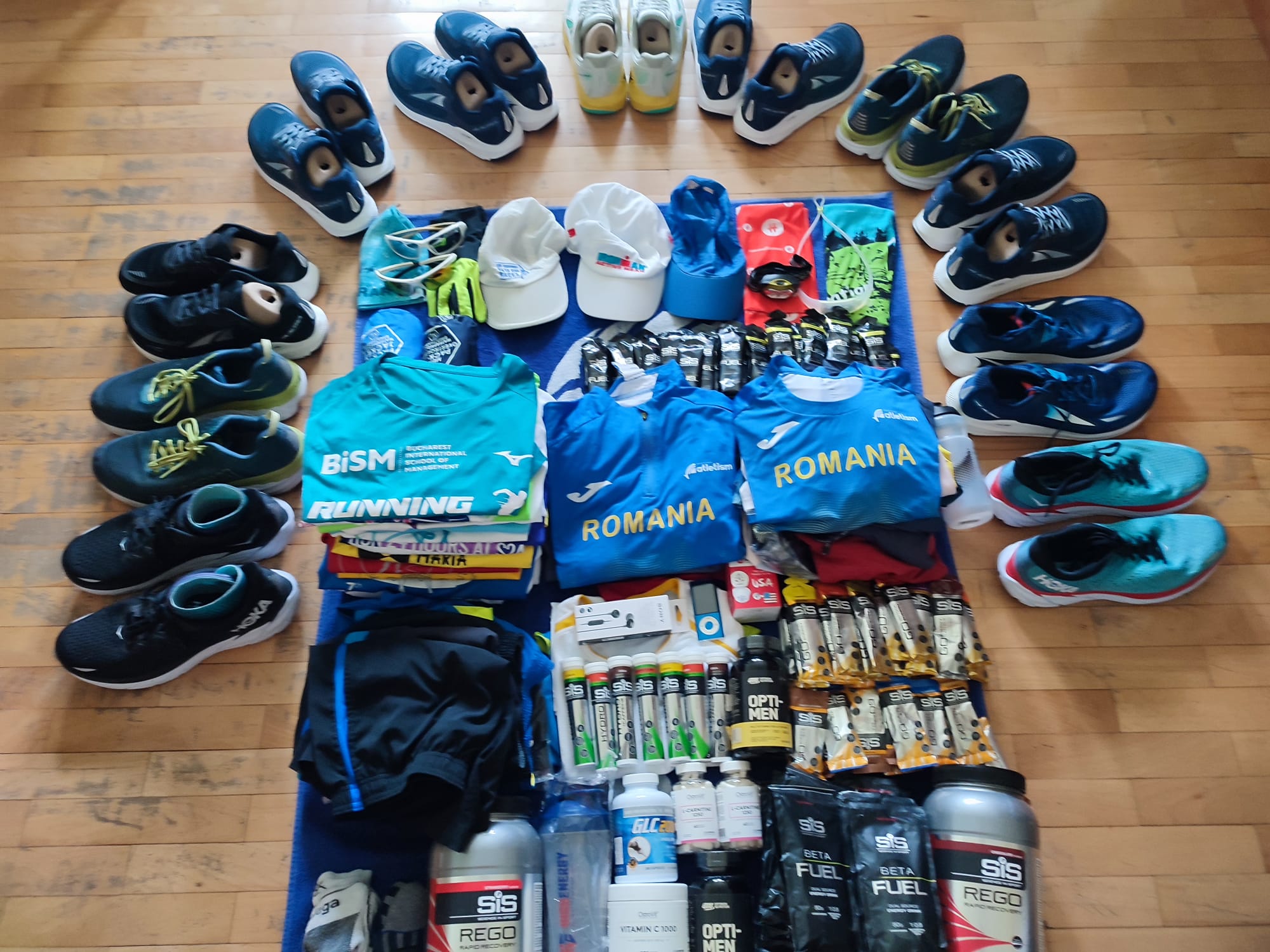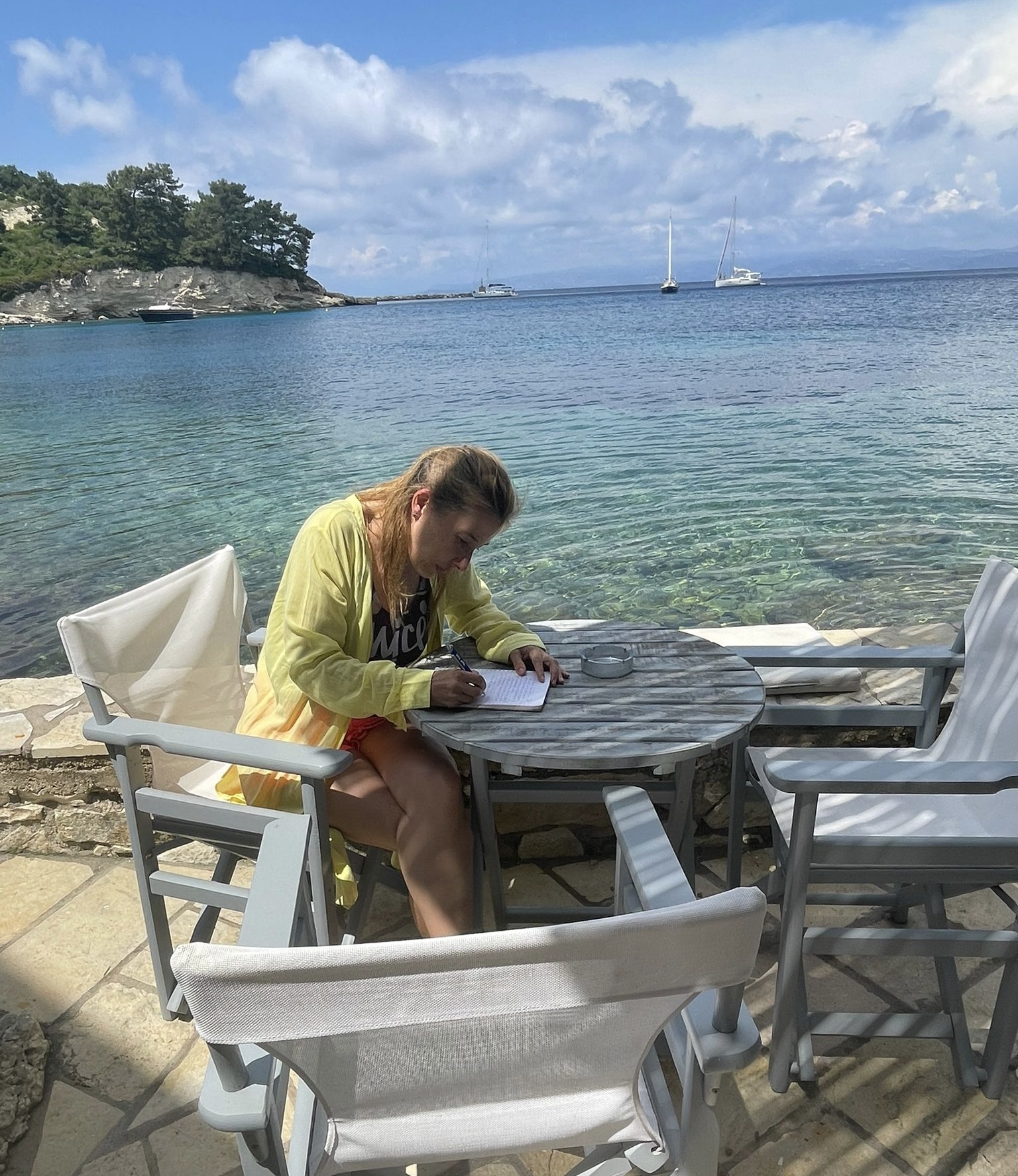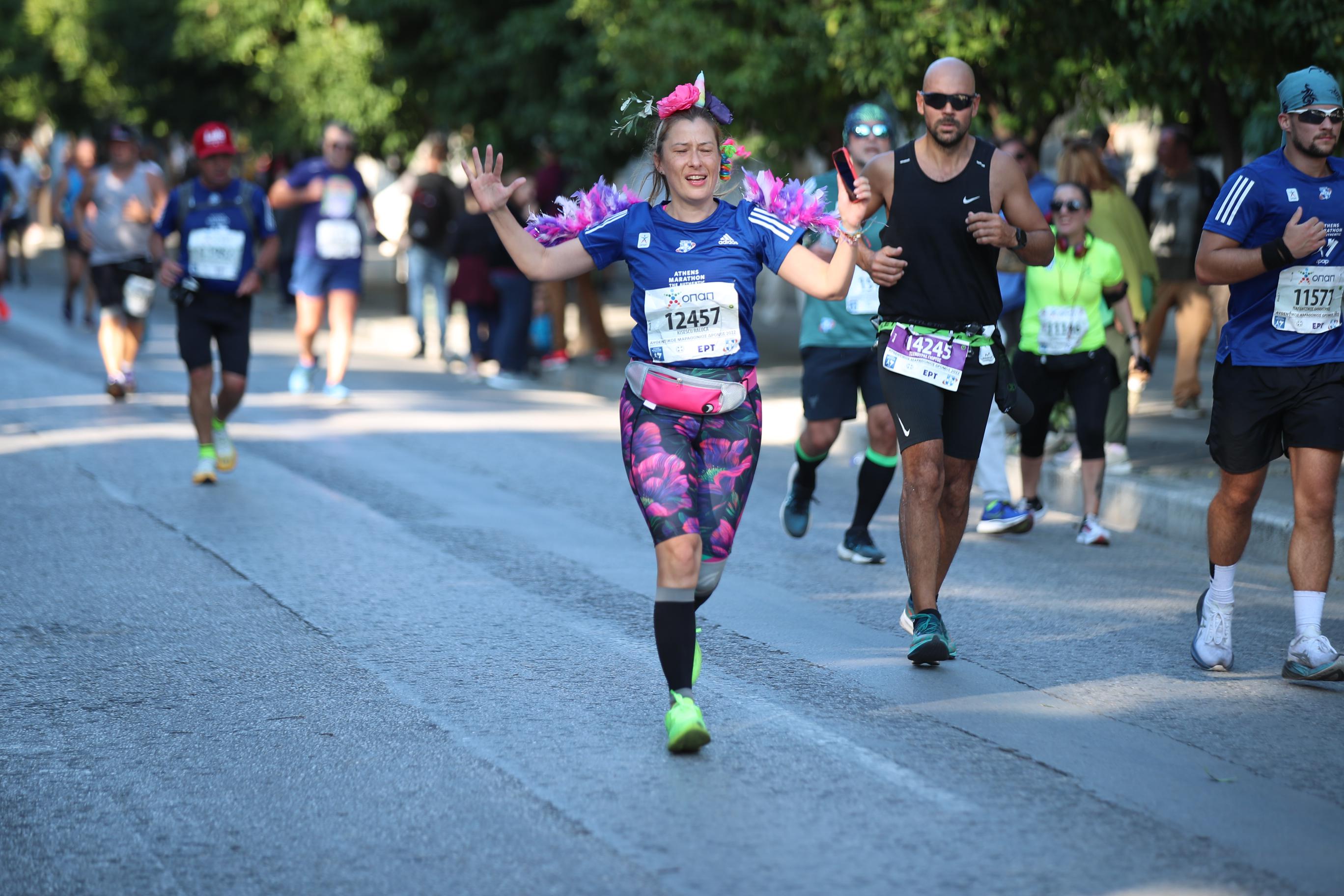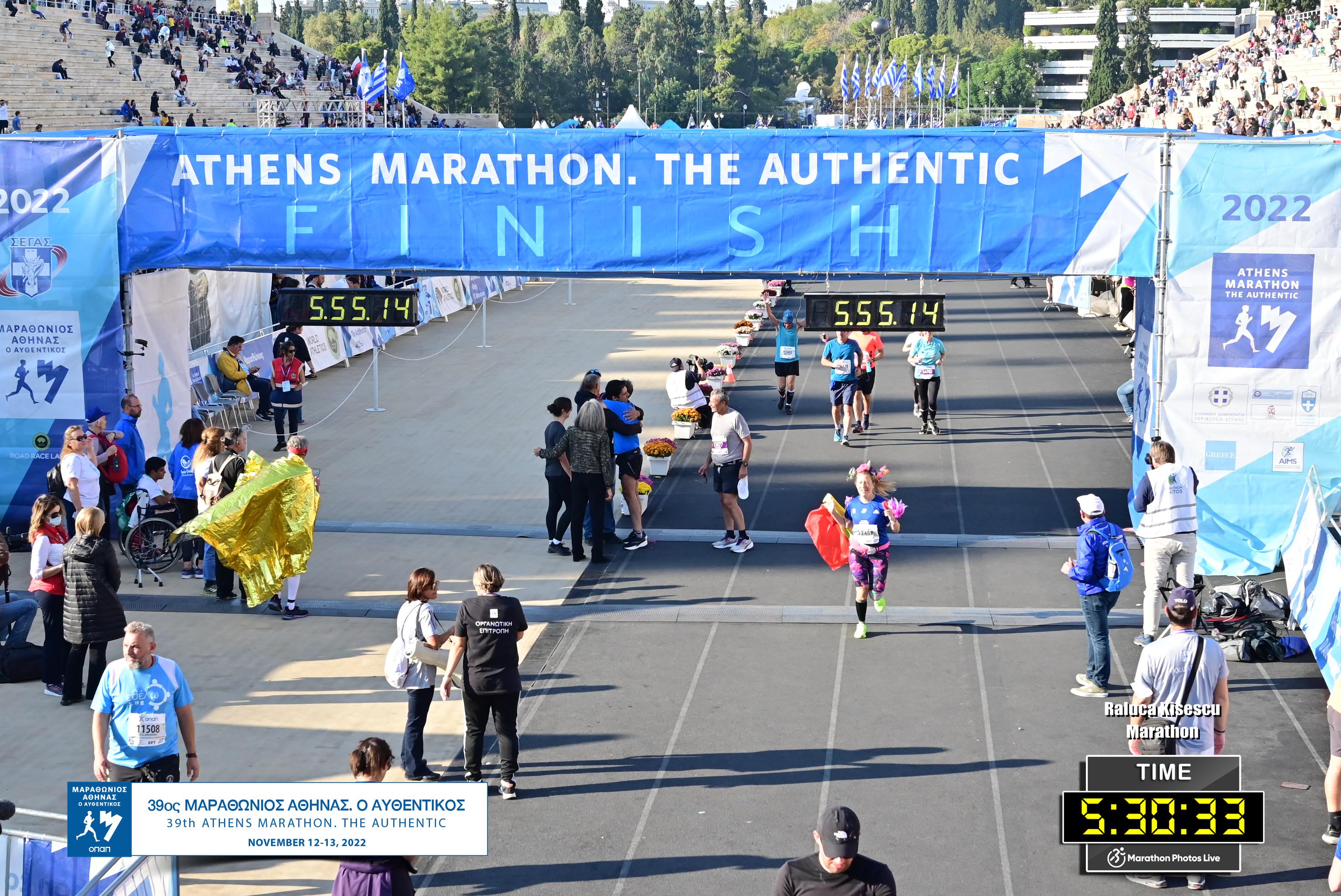Accepting pain in less than two hours. A text about hope.


What did you do last Sunday morning? Did you sip your coffee in your cosy comforable chair or did you catch the last rays of sun before summer’s encore goodbye? What kind of emotions did you feel? Anger, frustration, despair, lethargia?
Last Sunday morning I ran my personal best half marathon in precisely one hour fifty eight minutes and twenty six seconds. It was a real struggle because last year’s personal best was two hours and nine minutes and while you can erase wrinkles and years with some fillers here and there, you can not easily erase minutes from the running track.
During my run I felt anger (because your mind plays tricks on you when you are left alone to deal with it, therefore it pushed upfront unpleasant situations that I had been dealing with for long), I felt frustration (whenever it seemed that I was not able physically and mentally to support such effort), I felt despair (oh, no, I do not want to miss this target too), I felt hope (the automatic running app’s robot was telling me every 500 meters that I was on the right time), I felt powerful (in the end, I am 44 and started running long distances just 3 years ago), I felt I was doing the right thing for my body and, even more importantly, my mind. At the end, when I knew I would get that personal best, I cried with joy.
Why do we feel certain emotions? Which are the root causes of them?
On my 4th consecutive active summer, Mark Manson’s two books - The Subtle Art of Not Giving a Fuck and Everything is Fucked. A book about hope - were some of my reading companions. I love Mark’s straightforwardness, it slices apparently complex ideas into chunks of simple food for thought.
Back at the end of year 2019, when no coronavirus would interfere with anyone’s plans, I made some plans, including a half marathon in less than two hours. Fast forward mid May 2020, just after the two month lockdown, I realised that this might be the only plan that I could possibly follow (because it only depended on me, no other external factors) . So I trained for it really hard (4-5 times per week, around 40 km per week) and set the competition day on September 6. A year before, September 6 was one of the ugliest days in my life, so I had a strong motivation to erase it from the memory with a much nicer memory (a running record break).
What is the pain that you want to sustain? My answer: The physical pain of running long distances because it brings me joy and relief after, it is the only weapon against my feelings of anger, frustration, despair and lethargia.
When did I feel the best in the past 5 years? Why do I consider this to be a success/failure? Mark’s answer: Our values determine the nature of our problems and the quality of our live, as well as the metrics by which we measure ourselves and everyone else. Do not hide away from problems, because they add a sense of meaning and importance to our life.
Good values should be: reality based, socially constructive and immediate & controllable.
Bad values are: superstitions, socially distructive and not immediate & not controllable.
Examples of good values: honesty, innovation, vulnerability, standing up for oneself, standing up for the others, self-respect, curiosity, charity, creativity, humility.
Examples of bad values: dominance/manipulation/violence, random sex, feeling good all the time, always center of attention, not being alone, being liked by all, being rich for the sake of it.
If you are feeling miserable - yes, sometimes I do - in your current situation, chances are it is because you feel like some part of it is outside your control, in the same time you can not control what other people are doing to you. What can you do?
Two types of experiments: start running long distances (smiley face) or believe you are 100% responsible for everything in your life for a year long distance (we always control how we interpret what it happens to us, as well as how we respond). Which one seems easier to accomplish? (smiley face again)
My friends keep asking how I could possibly not get bored in two, three, four or five hours of running. My answer is that my heart, my body and my mind are good companions, they are challenging me with feelings, sensations and thoughts that keep me alert. Some friends say I run away of the real problems instead of solving them.
I keep on running. Because I agree that “we can be truly successful only at something we are willing to fail at!”
What am I willing to fail at in order to be successful? My answers: the relationship with my son, have a fit and healthy body, being a writter, helping others succeed, change the world into a better place for living. As finding real love is not (yet) on the list, it seems that I am not (yet) willing to fail again. The fear of failure - says Mark - comes from choosing shity values:)
Action is not just the effect of motivation, it is also the cause of it. I do not go running because I feel motivated, I get off the bed, put on the running shoes, it is not big fun in the first kilometer and then impromptu motivations shows of.
Out of the many choices we are offered daily, in the end we are defined by what we choose to reject. Apparently the power of saying no is a bigger one than the power of saying yes. How many of you are still saying yes to the good old pre-corona times?
Everything is Fucked. A Book abut Hope sounds like a brilliant anticipation of a world we are living in right now. What are we hoping for now? Being heroic is the ability to conjure hope where there is none. To show us a possibility for a better world, not a better world we want to exist, but a better world we didn’t knew could exist. (In this example, Mark Mason takes hope as meaning, purpose)
We are moved to action only by emotion. Action is emotion. In fact, every problem of self control is of emotion. Self-control is an emotional problem. (Think of procrastination, impulsiveness, etc) Therefore, emotional problems need emotional solutions.
I needed to be more self controled - in terms of discipline, perseverence, procrastination, avoidance - and I chose running as my action, my emotional solution. During all my training sessions I experienced a whole palette of emotional solutions, from stabbing some people who had been constantly getting on my nerves to making peace with the same ones, from thinking creatively about unsolved professional circumstaces to redefining work and life strategies, such as to become a renowned writer. A long run is the best business annd personal plan.
Instead of justifying and enslaving yourself to the impulses, challenge them and analyze them. Change their character and shape and use your preffered behaviours as rewards.
1. Every action demands an equal and opposite emotional reaction
2. Our self worth equals the sum of our emotions over time
3. Your identity will stay your identity until a new experience acts against it. Network of value based narratives is our identity.
I was someone else before I started running. I was avoiding pain and running taught me to gradually accept it. I was mixing good and bad values, but I am putting some effort into sticking more to the good ones (gave up smoking for two years, by the way).
How to change values? If you want to change your values or some of them, then Mark suggest that you write the narratives of your future self and envision what life would be like if you had certain values. Values can not be changed through reason, only thorugh experience!
Protecting people from problems or adversity does not make them happier or more secure, it makes them more easily insecure. This is something you should remember whenever you are trying to protect someone, be that person yourself, your child, your spouse, your friend, your parent.
No matter how much wealth is generated in the world, the quality of our lives is determined by the quality of our character and the quality of our character is determined by our relationship to our pain. Innovations are all actions that upgrade your pain, while diversions are all actions that avoid pain. Once an economy switches over primarily to diversions, the culture begins to shift. It is prosperity that causes crisis in hope. Prosperity makes meaning more difficult. And we need meaning way more than we need prosperity. The invention of marketing brought a modern gold rush to satiate people’s pursuit of happiness.
At least I can say that I kept my personal brand trait of an innovator while attempting to run long distances in shorter and shorter times.
My first half marathon was in May 2017 and I finished it in two hours and twenty one minutes. I was dressed up like Frida and had a bunch of supporters with me.
Three years later, on September 6 2020 I finished another half marathon (i do not count them anymore) twenty three minutes faster than the first one. No dressed up, no supporters, except my dad who was there to pass me water and record some videos/photos.
I felt like Carrie in Sex and the City when she planned the perfect dress for the perfect wedding and ended up happily in a regular dress and unregular wedding.
These twenty three minutes were all about accepting pain in thousands of kilometers and avoiding distractions on the way.
“Don’t hope for a better life: simply be a better life, because the only thing that can ever truly destroy a dream is to have it come true. It is the conflict that maintains the hope.”
P.S. Still, my supporters were online, donating for my cause - Hospice Casa Sperantei.
11 donations from 11 people - some of them are loyal, constant donors and I feel so lucky and grateful for all the people who are with me in this endeavour.
Many thanks for the donations now: Alina Jitaru, Alina Cinciulescu, Denisa Mihai, Diana Gavrila, Lucia Mirea, Mihaela Stanescu, Radu Atanasiu, Roxana Popescu, Sultana Graur, Silviu Miron si Anonymous.
In the end of this post I would leave with the question:
What is the pain that you want to sustain?
Recommended books/articles from Mark Mason:
Books:
Factfulness:Ten Reasons We're Wrong About the World--and Why Things Are Better Than You Think
Ernest Becker, The Denial of Death
Ken Wilber, Eye to Eye - The Quest for a New Paradigm
Dr. Sanjiv Chopra, The Big Five
Jonathan Haidt, Why Good People are Divided by Politics and Religion
Erik Erikson, Childhood & Society
Margaret Atwood, Debt and the Shadow Side of Wealth
John Gray, 7 Types of Atheists
Aaron Lynch, Thought Contagion: How Belief Spreads Through Society: The New Science Of Memes
Articles:
Journal of Adolescent Health
markmanson.net - 7 Strange Questions That Help You Find Your Life Purpose
ourworldindata.org/global rise of education
markmason.com - How We Judge Others is How We Judge Ourselves











